
How to have beautiful, healthy feet banish bunions and other abominations! Harrogate Yoga
Nerves Introduction A solid understanding of anatomy is essential to effectively diagnose and treat patients with foot and ankle problems. Anatomy is a road map. Most structures in the foot are fairly superficial and can be easily palpated.
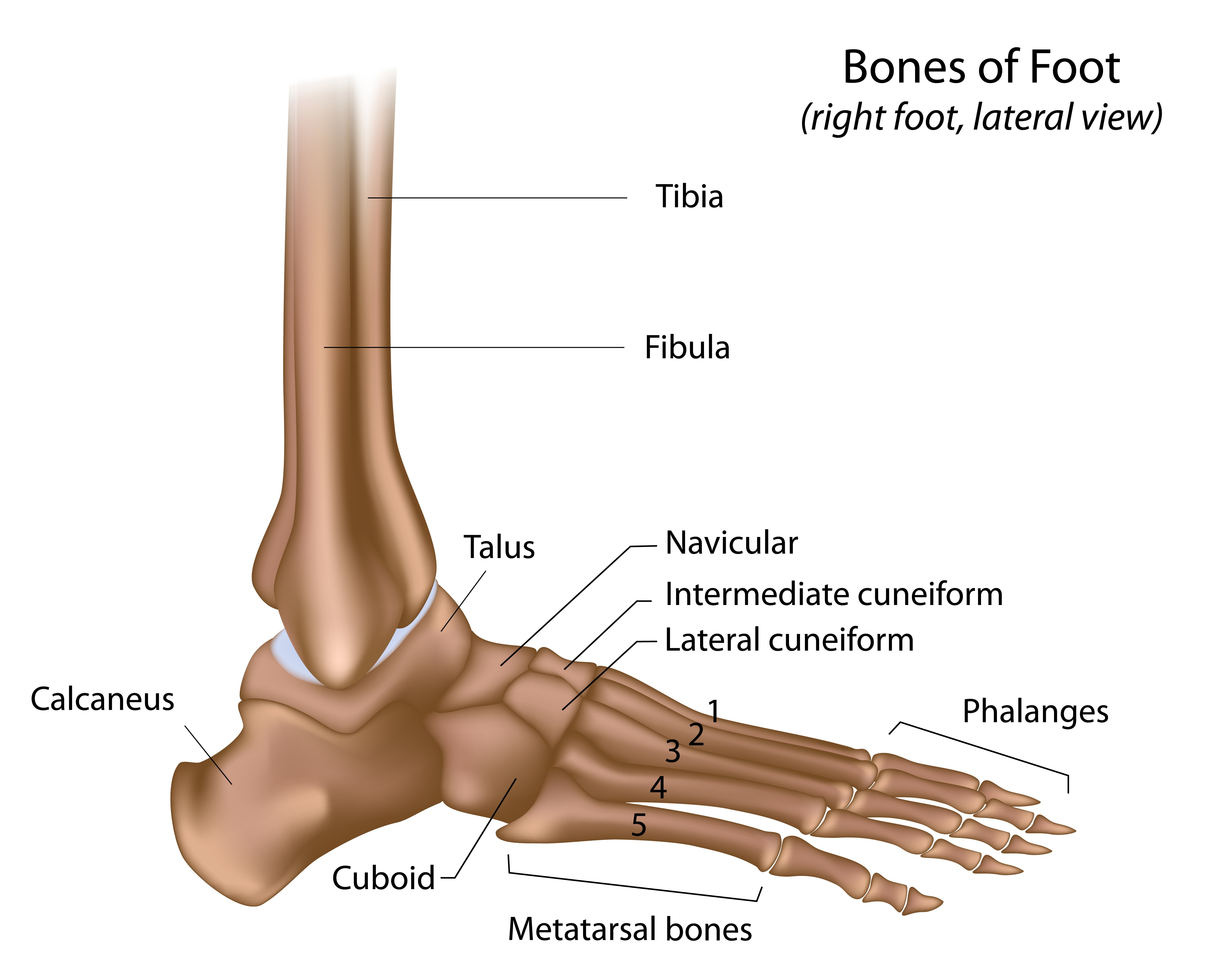
Ankle and Foot Pain Massage Therapy Connections
1. Tibia The tibia is the long bone at the front of the shin that runs down from the knee. It forms the top and inner side of the ankle joint where it meets the talus bone of the foot. Towards the bottom of the tibia, the bone expands outwards forming the medial malleolus, the prominent part on the inner side of your ankle. 2. Fibula

Diagram showing metatarsal bones of the foot. Download Scientific Diagram
Human body Skeletal System Bones Bones The skeletal structure of the foot is similar to that of the hand but, because the foot bears more weight, it is stronger but less movable. The.

Anatomy of the Foot and Ankle OrthoPaedia
foot, in anatomy, terminal part of the leg of a land vertebrate, on which the creature stands. In most two-footed and many four-footed animals, the foot consists of all structures below the ankle joint: heel, arch, digits, and contained bones such as tarsals, metatarsals, and phalanges; in mammals that walk on their toes and in hoofed mammals.

Foot & Ankle Bones
Foot Bones: Forefoot. The forefoot consists of 19 bones; 5 metatarsal bones and 14 phalanges. The big toe has 2 phalanges bones, while the remaining four have 3 phalanges each. The 1st metatarsal is the shortest and thickest of the metatarsals, and it is designed to take up to 40% of your body weight in standing, which rises to 70% when walking.
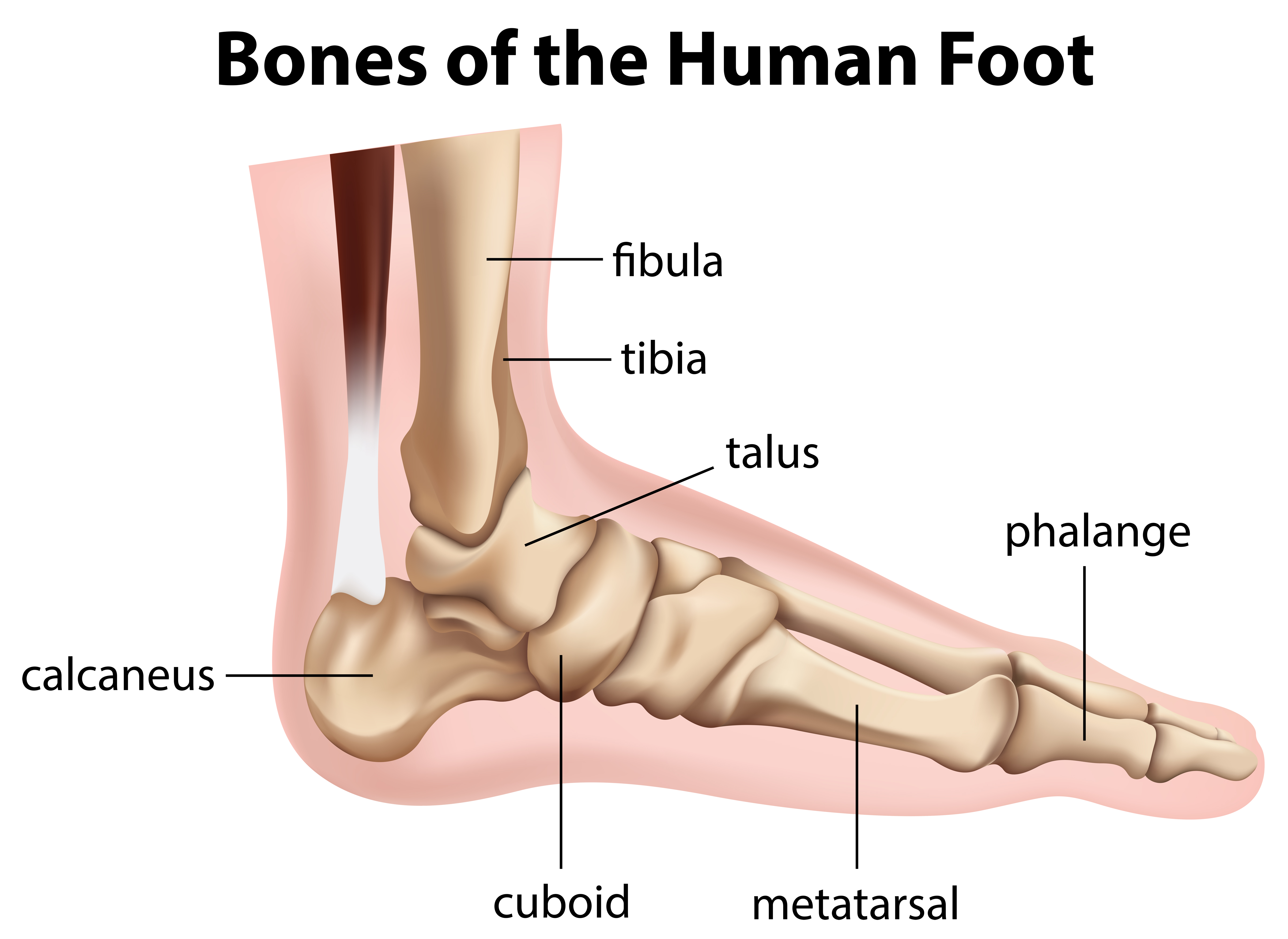
huesos del diagrama del pie humano 1142236 Vector en Vecteezy
The first metatarsal bone leads to the big toe and plays an important role in forward movement. The second, third, and fourth metatarsal bones provide stability to the forefoot. Sesamoid bones: These are two small, oval-shaped bones beneath the first metatarsal on the underside (plantar surface) of the foot. It is embedded in a tendon at the.

Foot bones anatomy Royalty Free Vector Image VectorStock
The foot is the region of the body distal to the leg that is involved in weight bearing and locomotion. It consists of 28 bones, which can be divided functionally into three groups, referred to as the tarsus, metatarsus and phalanges. The foot is not only complicated in terms of the number and structure of bones, but also in terms of its joints.

anatomy of the foot Ballet News Straight from the stage bringing you ballet insights
Generally, the three groups are the: tarsals metatarsals phalanges Tarsals The tarsals are a group of seven bones close to the ankle. The proximal tarsal bones are the talus and the calcaneus,.
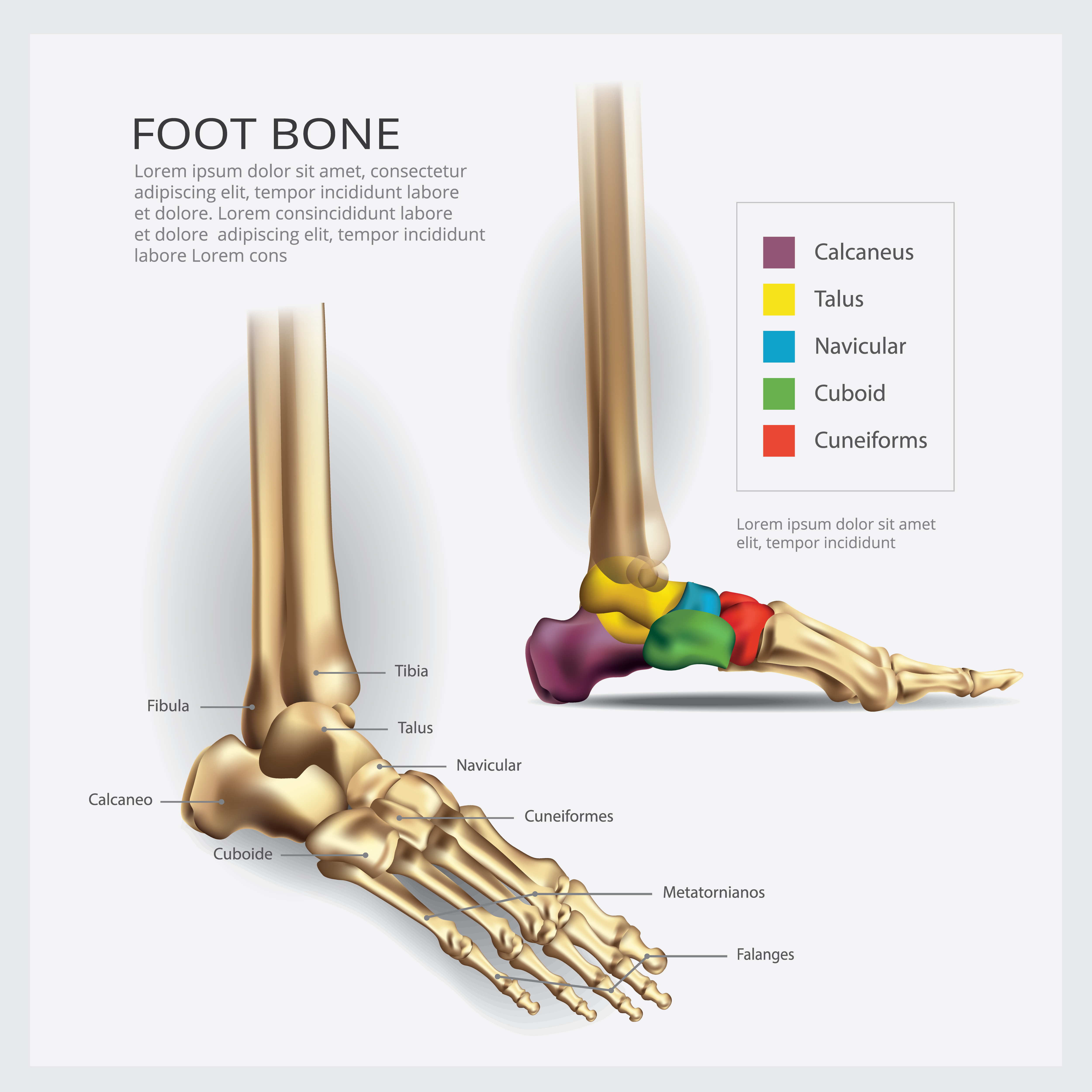
Foot Bone Anatomy Vector Illustration 539973 Vector Art at Vecteezy
Cuboid Navicular Many of the muscles that affect larger foot movements are located in the lower leg. However, the foot itself is a web of muscles that can perform specific articulations that.

Anatomy Specific Bones of the Feet YouTube
The foot is an intricate part of the body, consisting of 26 bones, 33 joints, 107 ligaments, and 19 muscles. Scientists group the bones of the foot into the phalanges, tarsal bones, and.

Foot pain looking up the chain
Fore-foot - the fore-foot is composed of the metatarsals and phalanges. The bones that comprise the fore-foot are those that are last to leave the ground during walking. Mobile Joints of the foot and ankle: (See Figure 3.) Ankle joint. Sub-talar joint. Talo-navicular joint. Metatarso-phalangeal (MTP) joints.

The bones in the foot inferior view (Picture illustrated from Thieme... Download Scientific
The anatomy of the foot The foot contains a lot of moving parts - 26 bones, 33 joints and over 100 ligaments. The foot is divided into three sections - the forefoot, the midfoot and the hindfoot. The forefoot This consists of five long bones (metatarsal bones) and five shorter bones that form the base of the toes (phalanges).
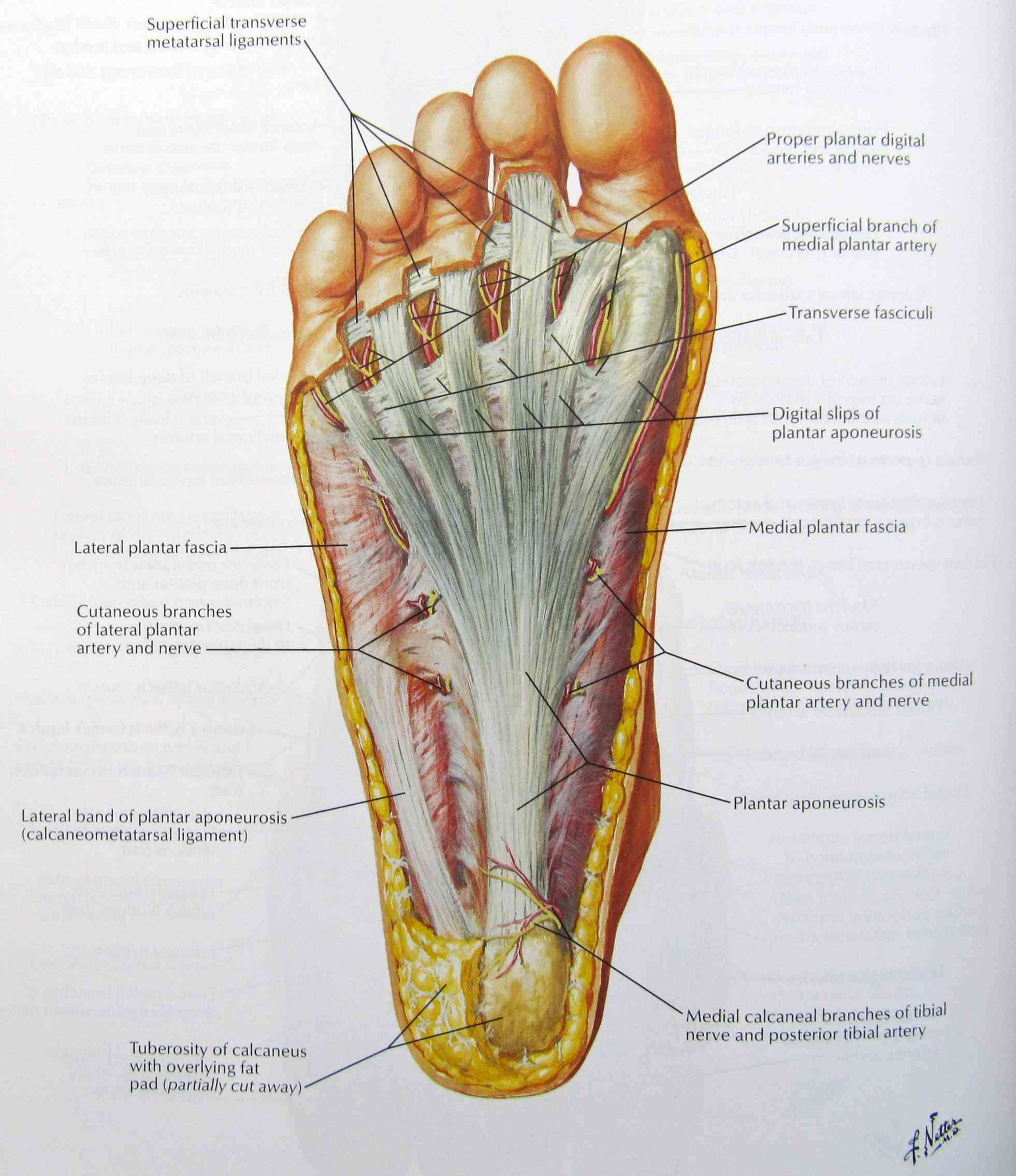
Anatomy The Bones Of The Foot
Medial cuneiform Intermediate cuneiform Lateral cuneiform Some people may be born with an extra navicular bone ( accessory navicular) beside the regular navicular bone, on the inside of the foot. This is a normal anatomical variation seen in around 2.5% of the entire population of the US. Metatarsal Bones
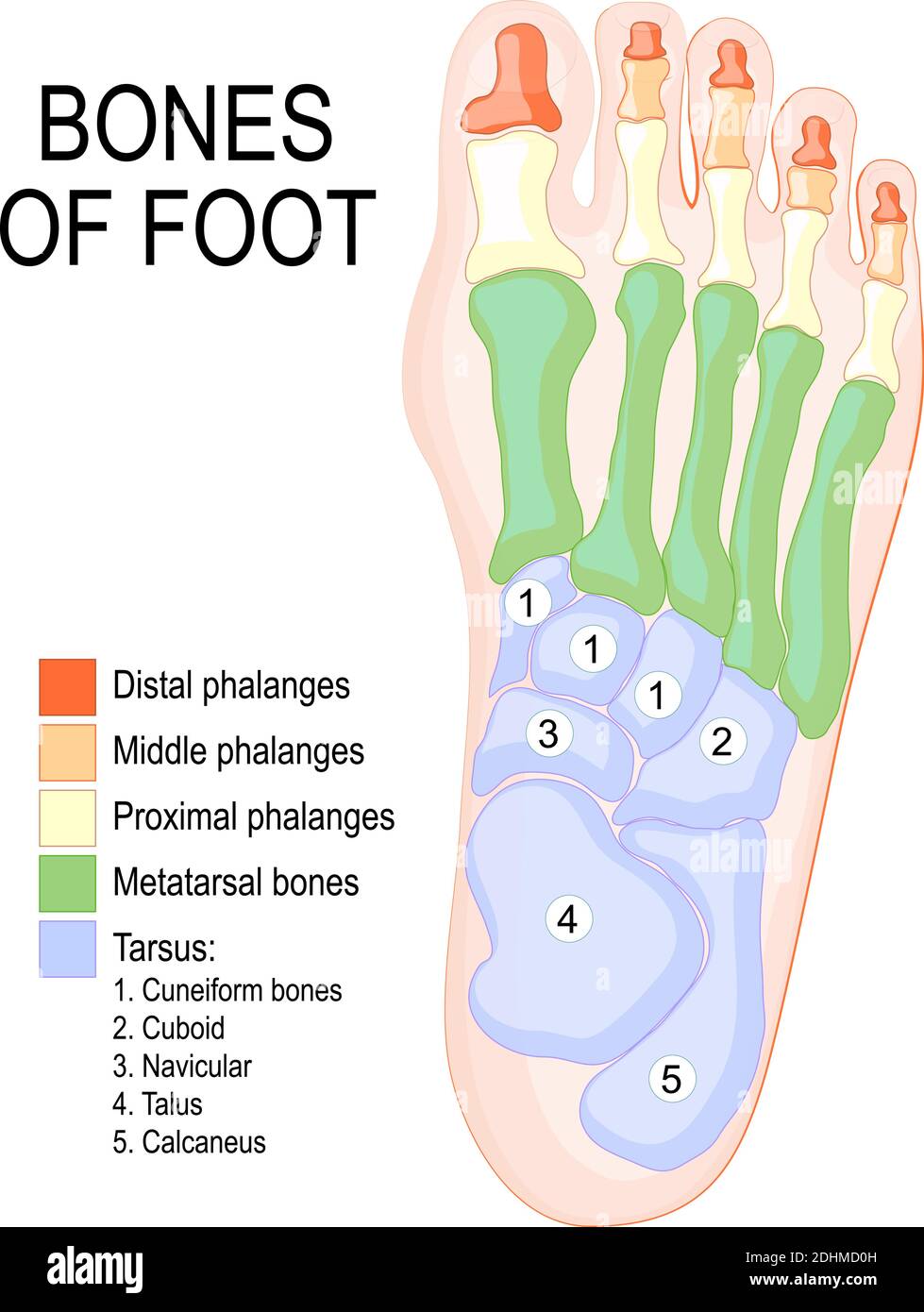
Bones of foot. Human Anatomy. The diagram shows the placement and names of all bones of foot
The foot can also be divided up into three regions: (i) Hindfoot - talus and calcaneus; (ii) Midfoot - navicular, cuboid, and cuneiforms; and (iii) Forefoot - metatarsals and phalanges. In this article, we shall look at the anatomy of the bones of the foot - their bony landmarks, articulations, and clinical correlations.
.jpg)
Foot Bone Diagram resource Imageshare
Human body Skeletal System Bones of foot Bones of foot The 26 bones of the foot consist of eight distinct types, including the tarsals, metatarsals, phalanges, cuneiforms, talus,.

Foot Description, Drawings, Bones, & Facts Britannica
There are 26 bones in the foot, divided into three groups: Seven tarsal bones Five metatarsal bones Fourteen phalanges Tarsals make up a strong weight bearing platform. They are homologous to the carpals in the wrist and are divided into three groups: proximal, intermediate, and distal.